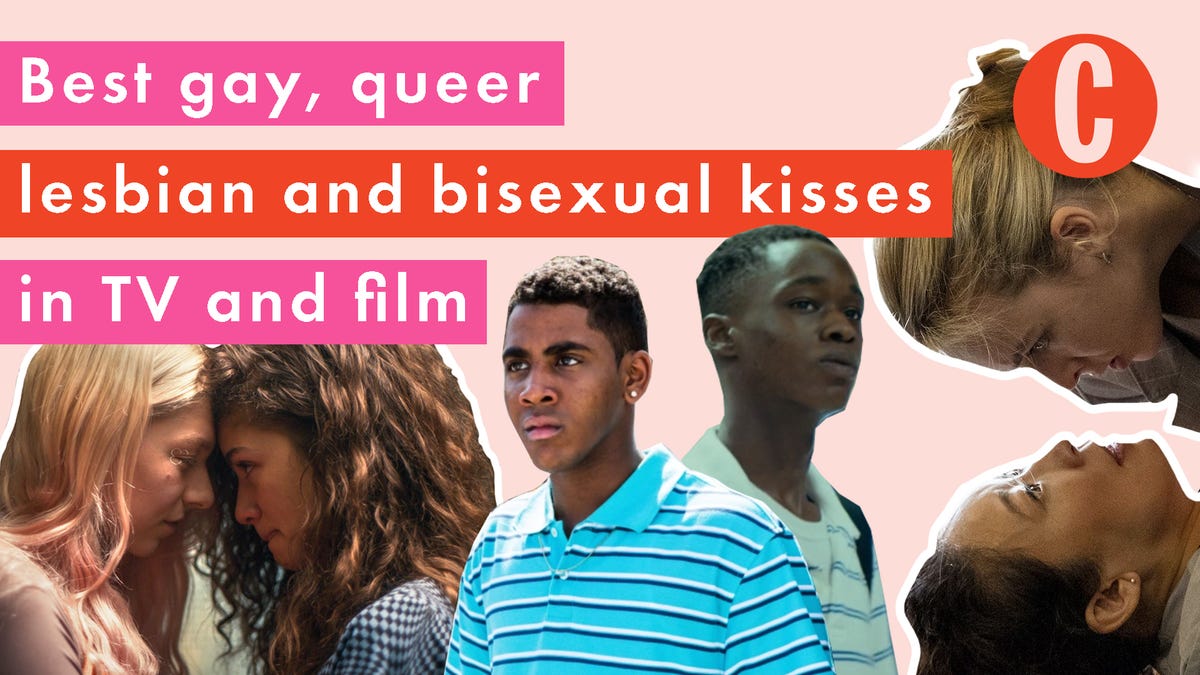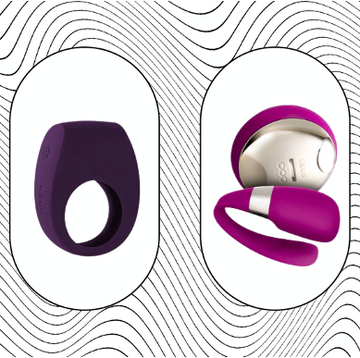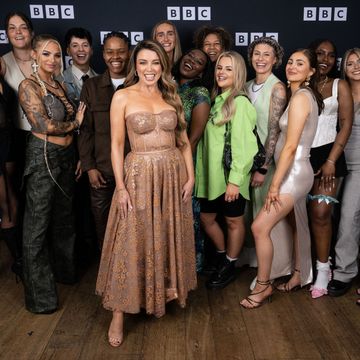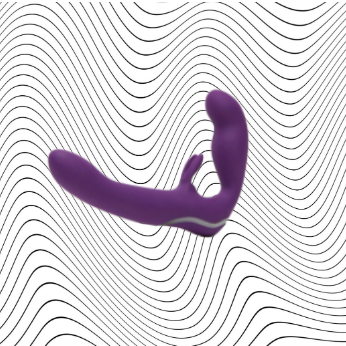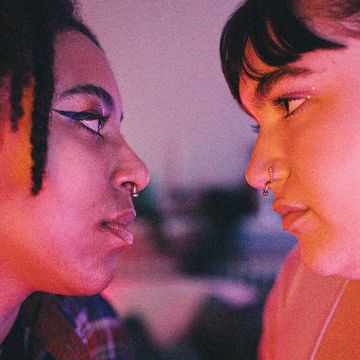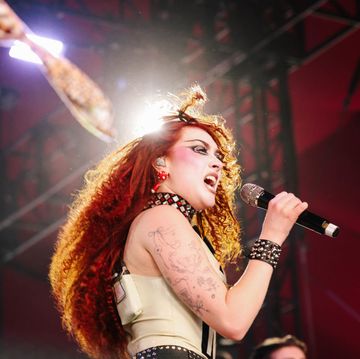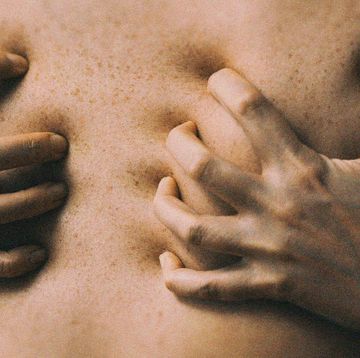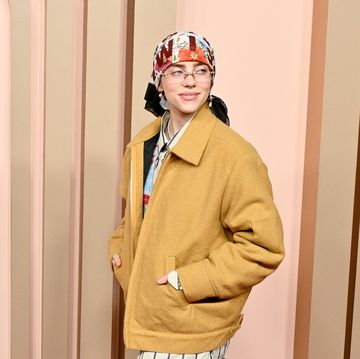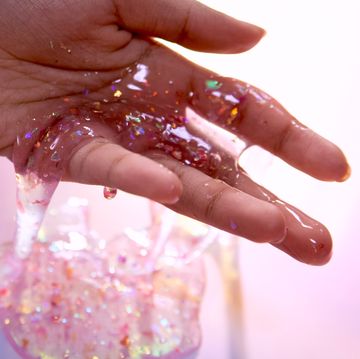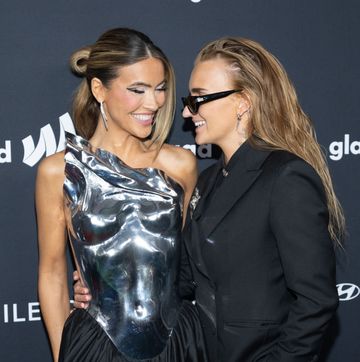Lesbian Visibility Week runs from 25 April to 1 May and is an opportunity to bring awareness to the lesbian community and celebrate the diversity within it.
During this time, it's important to highlight that there really is no one way to be a lesbian: the community can encompass people of many gender experiences (FYI, it's not just a label for cis women, non-binary people and trans people can be lesbians too) and there are no set rules on how to "look like a lesbian".
If you didn't already know, there is a spectrum of lesbian-specific identities around gender presentation and expression: more "femme" or feminine identities, more "butch" and "masc" or masculine identities and a range of experiences in-between and beyond. Some individuals might identify with these terms and find them helpful while some might not, and that's okay! Relationships within the lesbian community also come in lots of different shapes and sizes. Sometimes two "femme" people might be in a relationship, while other times it's two butch or masc people that are together – and these relationships can be polyamorous, open, or throuples.
In wider society, you might have come across the perception that the most "normal" or "natural" lesbian couples consist of one masc and one femme person. Often there is a stereotype that these relationships function in a way where the masculine partner is more dominant and the feminine partner is more nurturing and caring. Well, we've got some news for you: yes, masc/femme couples exist but, no, they're not your heteronormative fantasy! You can't tell based on gender presentation alone what roles individuals might take up in a relationship or how their dynamic works because, you guessed it, everyone is different and no relationship (lesbian or otherwise) is the same.
To learn more, we called up three masc/femme couples to chat stereotypes versus reality...
Sophie (she/her) and Rachel (they/she)
"We met on Hinge and have been a couple for a year and a half."
What are some of the assumptions people make about masc/femme couples?
Rachel: It’s presumed a lot of the time that the more masculine, boyish person would handle the finances or be more dominant and take more of an assertive role – in a way that's similar to the masculine stereotypes in society. It’s a stereotype that you have to have a masculine person for any relationship to work and that’s obviously very sexist and a product of the patriarchy.
Sophie: From the femme point of view, as someone who is pansexual, and with this being my first lesbian relationship, I get the classic questions of “is she the man?” or “what made you turn lesbian?” Everyone is so shocked that I have a girlfriend, it’s very much a case of compulsory heterosexuality.
Compared to these stereotypes and assumptions, what is the experience of your relationship really like?
Rachel: Sophie does like having things done for her and being treated like a princess, so she likes me organising dates and taking that role, though that’s something that I like doing anyway. More generally, the relationship is very balanced.
Sophie: I’d say that I’m more dominant socially and take a more alpha female role.
What are some of the positives about your relationship?
Sophie: What I like about a lesbian relationship is that we’re both in touch with our emotions and there isn’t the same toxic masculinity. More generally, I love how Rachel makes me feel safe and secure. I’m a very anxious person in any romantic relationship and Rachel has always been known to reassure me in a way no-one has before. I feel like we’re each other soulmates.
Rachel: Sophie’s literally the most open person, she’s much more open than I am and willing to talk about her feelings. That’s really helped me as someone who grew up struggling with identity and sexuality. She’s really helped me feel more confident in myself and more confident to explore things to do with gender.
Wyse (she/they) and Hannah (she/ they)
"We dated when we were 17 but got back together a year ago after bumping into each other in a Costa."
When people meet you, what sort of assumptions do they make about your relationship based on your differing gender expressions?
Hannah: Everyone thinks that Wyse has the better job than me and earns way more than me and I have the part-time job and stay at home to do the housework and cook. I’m more feminine-presenting so people assume that they can ask me more about my life and ask me “when are you going to have kids?”
Wyse: People always assume that Hannah was the one who decorated the house, even though that was me. When we’re in public, people speak to me and address me instead of Hannah.
Are any of these assumptions true? Or are they just misconceptions?
Wyse: The problem is that some of the stereotypes are accurate [in our relationship] like I would say I am the more decisive one in our relationship. Those few things that do fit are used to reinforce the wider assumptions. But I’m definitely the more sensitive, emotional one. In lots of ways we are equal and no one makes more decisions than the other.
As a more feminine lesbian and a more masculine-presenting lesbian, do you find that the world treats you both in different ways?
Wyse: Recently I've cut my hair and I've definitely noticed a change in how people act towards me as I present in a more masculine way. I've become completely invisible to men with short hair, whereas Hannah gets constantly hassled and disbelieved that she has a girlfriend.
Hannah: I’ve had a lot of experience of people saying or shouting homophobic things in my life. Because I’m more feminine-presenting guys don’t believe that I’m gay because they can’t [imagine it].
Naomi (she/her) and Sophie (she/her)
"We’ve been together for a year but have known each other for three."
What are some of the stereotypes about masc/femme relationships that you’ve come across?
Naomi: Just because I wear more masculine clothes or I am more masculine-presenting and Sophie is more feminine-presenting doesn’t mean that the dynamic of our relationship always fits into feminine/masculine [but there is an assumption that this is the case].
Would you say that your relationship challenges some of these stereotypes?
Sophie: People used to say when we got together that I was the feminine dominant and Naomi was masculine but more submissive or passive. Whereas the stereotype is usually the other way. We bring out different sides of each other and I bring out Naomi’s feminine side a lot more.
How does your relationship dynamic help you explore your relationship to gender?
Sophie: I’m quite a strong character and I’ve been in a relationship with a guy before and I felt like I couldn’t be as confident. Whereas being in a relationship with Naomi, we’re very 50/50. That’s really nice and I've been able to stand up for myself more.
Naomi: Because we're two girls, there are no set rules. I’ll do more cooking for example even though that’s more of a “femme” thing. It’s not like “Go on then Sophie, you’re the girl so go make the dinner.” It’s just whatever you want to do.



